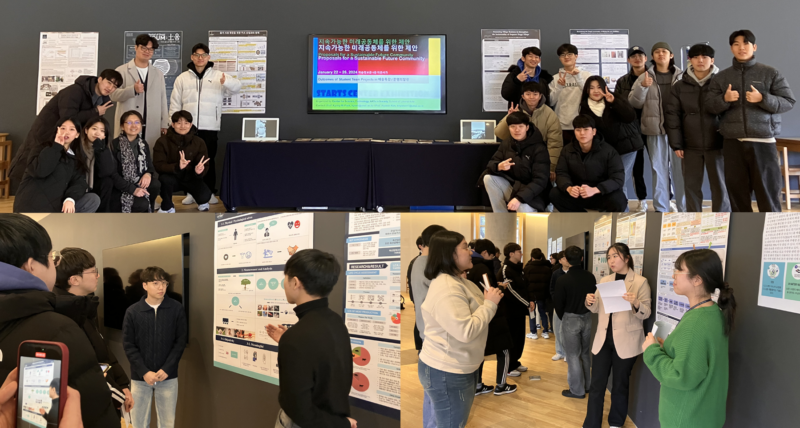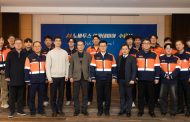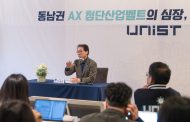The Center for Science, Technology, ARTs in Society (STARTS Center) within the School of Liberal Arts at UNIST held a five-day exhibition under the theme of “Sustainable Future Community” at Jigwanseoga, located on the 1F of UNIST Library on January 22, 2024.
The exhibition aimed to showcase the outcomes of team projects by 47 students who participated in the “Topics in Arts (Advisor: Professor Kyong-Mi Paek)” and “Evolution of Civilization (Advisor: Professor Hyomin Kim)” courses offered by the School of Liberal Arts at UNIST during the winter semester. The projects explored the potential of Oegosan Onggi Village and proposed innovative approaches to address climate change. The exhibition aimed to inspire students and future leaders to contemplate a sustainable future community and foster interdisciplinary discussions on science, technology, art, and education. During the exhibition, a total of 13 team projects were presented.
Professor Kyong-Mi Paek, the Director of STARTS Center, stated, “The exhibition was curated to provide not only students but also future leaders of the science and technology community with an opportunity to contemplate a sustainable future community together.”
The exhibition featured diverse approaches to activate the Oegosan Onggi Village, presented by students who took the special lecture on art. Through an understanding of Onggi’s physical characteristics and cultural uniqueness, the projects suggested meaningful alternatives such as enhancing the potential added value through connections with the kids industry and creating spaces to expand the utilization of Onggi.
Before selecting specific topics, students visited the Oegosan Onggi Village located in Onyang, Ulju-gun, and listened to the narratives of the site. The “Special Lecture on Art” is a project-based course with a focus on cultural homogenization in a hyperconnected society, the importance of human cultural diversity, and the sustainability of region-based traditional cultural heritage.
The exhibition also showcased discussions on how civilization can address “natural phenomena that are difficult to measure,” such as climate change. Students from the Development of Civilization course proposed a new integrated approach to tackle climate change and comprehend human consciousness – two challenges in modern society. The proposals were based on historical and sociological discussions surrounding “objective measurement criteria for facts.” The students’ discussions included in-depth analysis of carbon capture technology, modeling, synthetic fuel, life cycle evaluation, and the relationship between the body and emotions. The Development of Civilization course focuses on the formation and transformation of modern rationality and the process of self-reflection after the 16th and 17th centuries.
During the exhibition, Young Soo Choi, Director of the UNIST Development Foundation (CEO of Samdu General Technology Co., Ltd.), Professor Sung Wook Hong from Seoul National University, Professor Jae Won Cho from UNIST, Heo Jin-kyu, Onggijang, and officials from the Ulju-gun Tourism Division visited the exhibition hall to encourage the students.
Director Choi Young-soo, who toured the exhibition hall, expressed, “I was deeply moved by the passion and dedication of Professor Baek, who guided the students and the projects.”
Currently, the STARTS Center comprises seven internal and external researchers from the fields of arts, humanities, society, and engineering. Since last year, the center has been engaged in interdisciplinary discussions on science, technology, art, and education for a ‘sustainable future community’ through an academic seminar series. Various inquiry-based convergence education activities are being promoted, including water-themed convergence research, research clubs focusing on educational platforms, and project-based courses.






![[2026 UNIST Commencement] UNIST Confers Degrees to 883 Graduates](https://news.unist.ac.kr/wp-content/uploads/2026/02/사진-2026학년도-UNIST-졸업생들이-학사모를-위로-던지며-졸업을-축하하고-있다-1-800x413-190x122.jpg)





